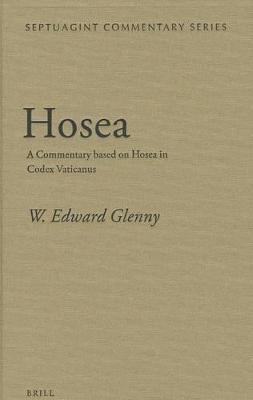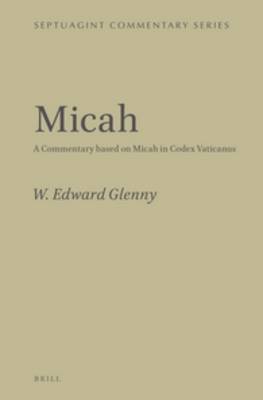Septuagint Commentary
3 total works
Rather than studying the LXX of Hosea mainly as a text-critical resource for the Hebrew or as a help for interpreting the Hebrew, this commentary, as part of the Septuagint Commentary Series, primarily examines the Greek text of Hosea as an artifact in its own right to seek to determine how it would have been understood by early Greek readers who were unfamiliar with the Hebrew. This commentary is based on the uncorrected text of Vaticanus, and it contains a copy of that text with notes discussing readings that differ from modern editions of the LXX along with a literal translation of that text. This commentary also has an introduction to the Minor Prophets in the Septuagint. It is relevant for anyone studying the LXX or the book of Hosea.
In this commentary W. Edward Glenny provides a careful analysis of the Greek text and literary features of Amos based on its witness in the fourth century codex Vaticanus. The commentary begins with an introduction to Amos in Vaticanus, and it contains an uncorrected copy of Amos from Vaticanus with textual notes and a literal translation of that text. In keeping with the purpose of Brill's Septuagint Commentary Series Glenny seeks to interpret the Greek text of Amos as an artifact in its own right in order to determine how early Greek readers who were unfamiliar with the Hebrew would have understood it.
In this commentary W. Edward Glenny provides a careful analysis of the Greek text and literary features of Micah based on its witness in the fourth century codex Vaticanus. The commentary begins with an introduction to Micah in Vaticanus, and it contains an uncorrected copy of Micah from Vaticanus with textual notes and a literal translation of that text. In keeping with the purpose of Brill's Septuagint Commentary Series Glenny seeks to interpret the Greek text of Micah as an artifact in its own right in order to determine how early Greek readers who were unfamiliar with the Hebrew would have understood it.


